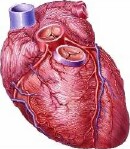
TUESDAY, Oct. 19 (HealthDay News) — Patients who took aspirin before heart surgery suffered fewer heart attacks, stroke and other problems after their operations, and those given statins had better survival rates, two new studies find.
In the aspirin study, researchers identified 1,148 patients undergoing bypass, valve or other scheduled cardiac surgeries. Of those, 860 were taking aspirin in the five days before the surgery and 288 were not taking aspirin.
During the 30 days after surgery, nearly 13 percent of patients not taking aspirin experienced a heart attack, stroke or other major cardiac event, compared to only 8.6 percent in the aspirin group, the researchers found.
Aspirin also seemed to stave off post-surgery kidney failure, said senior study author Dr. Jian-Zhong Sun, an associate professor of anesthesiology at Thomas Jefferson University in Philadelphia.
About 3.8 percent of those taking aspirin experienced kidney failure after surgery, compared to 7 percent not taking aspirin.
“At this time, we still don’t have a proven therapy to prevent the major complications involving the heart, brain and kidney that are common after cardiac surgery,” Sun said. “Aspirin looks like a simple and promising drug to prevent some major complications.”
Many Americans with cardiovascular disease take low-dose aspirin (81 milligrams/day). But the American Heart Association and the American College of Cardiology recommends patients stop taking aspirin before major surgery, including heart surgery, because aspirin can increase the risk of excessive bleeding and the need for blood transfusions, Sun pointed out.
More research needs to be done before he would recommend changing those guidelines, Sun added.
“If confirmed in other studies, particularly if we can proceed to a randomized clinical trial that shows aspirin does not increase the bleeding, then at that time we can make a recommendation to change the practice guidelines,” Sun said.
In the study, patients taking aspirin did not have a higher rate of readmission due to infection, bleeding or fluid accumulation in the chest and around the heart, Sun reported.
The patients taking aspirin also tended to be older, and more likely to have hypertension, diabetes, peripheral artery disease and a history of coronary artery disease. Even though the aspirin group was on balance sicker than the non-aspirin group, they still did better, Sun noted.
“This corroborates other research that shows, as simple as it seems, aspirin is effective,” said Dr. Vincent Bufalino, president and CEO of Midwest Heart Specialists outside Chicago.
In a second study, researchers in Finland found that patients who were not taking statins before undergoing coronary bypass surgery were twice as likely to die as people who were taking the cholesterol-lowering drugs.
Researchers identified 1,034 patients aged 42 to 81 undergoing bypass surgery. Of those, 703 were prescribed statins before surgery while 331 were not.
About 2.7 percent of patients given statins died in the month following surgery, compared to about 5.1 percent of those not given statins.
During the year after surgery, about 4 percent of those given statins died, compared to nearly 11 percent of those not taking statins, the researchers reported.
Statins are a widely prescribed class of drugs designed to lower cholesterol. For heart patients, cholesterol-lowering isn’t necessarily the aim, Bufalino said. Research has shown statins can also reduce inflammation that can lead to blood clots, which can cause heart attacks and stroke.
It’s common practice at U.S. hospitals for cardiac surgery patients to be prescribed statins before leaving the hospital, Bufalino said.
“There’s been pretty convincing evidence that treating these people early and treating them regardless of their cholesterol level, whether it’s high, medium or acceptable, is a good idea,” Bufalino said. “This is just one more study providing solid evidence that putting these patients on statins clearly works.”
The studies were to be presented Tuesday at the American Society of Anesthesiologists annual meeting in San Diego.
More information
The American Heart Association has more on statins, aspirin and other cardiac medications.

